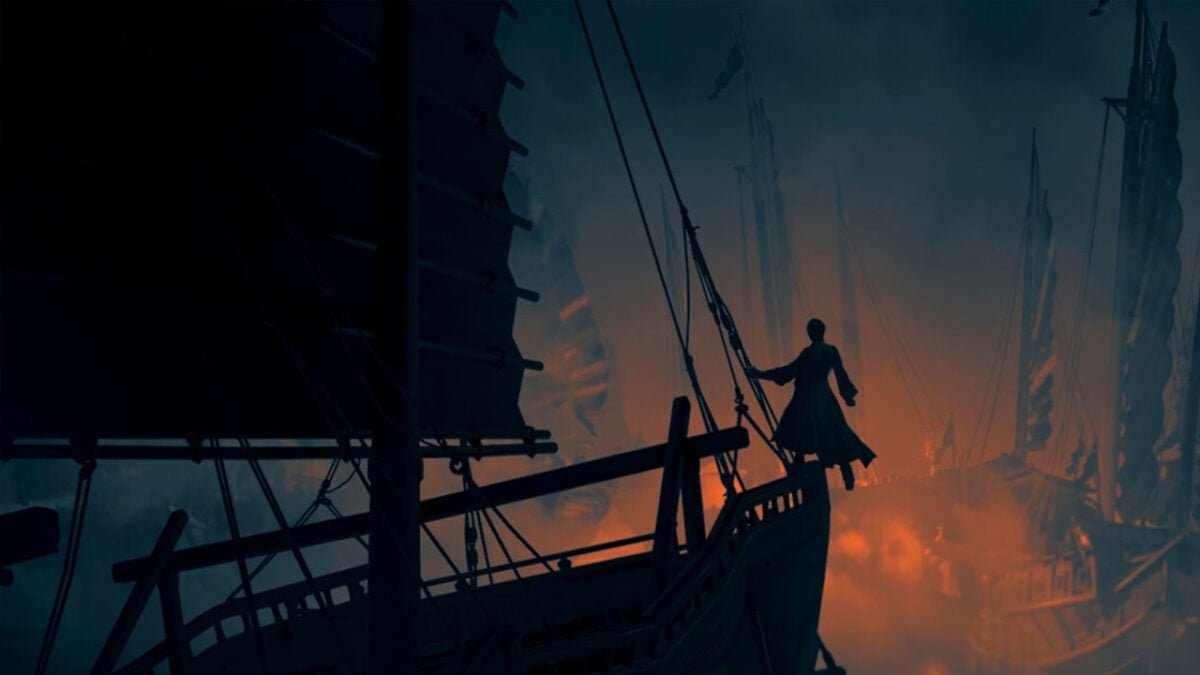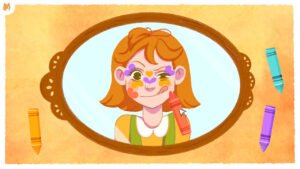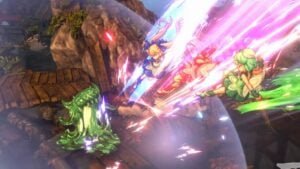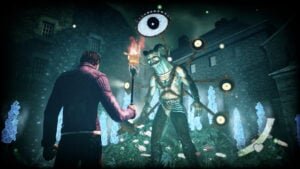What if I told you the most powerful pirate in history was a woman? That’s exactly what Singer Studios decided to do when it started production on The Pirate Queen: A Forgotten Legend. The Pirate Queen was meant to be a film that tells the story of how the wife of a pirate became the leader of a massive fleet and even implemented some of the first ideas of gender equality into law.
With the release in the rearview mirror, CGMagazine was able to sit down with Singer Studios Director Eloise Singer and Executive Producer/Lead Actress Lucy Liu to talk about all things The Pirate Queen: A Forgotten Legend, the power of women, the importance of storytelling and the difficulties of going from producing film to VR game production.
So, you both have a lot of experience in film and television, but this is the first time Singer Studios has made a video game. What made you guys say, ‘Hey, let’s do VR’?

Singer: That’s a very good question. So actually, we started it initially as a film, and so we were developing The Pirate Queen as a film. A friend of mine told me about the story, and she said; Did you know that the most powerful pirate in history was a woman? At first, I didn’t believe her, and the more I looked into it, the more fascinated I was with her story.
The fact that not only was she the most powerful pirate in history, and she commanded 70,000 men during the lead-up to the Opium Wars, but she paved the way for gender equality, and she literally created a code of laws that meant that men and women had to be treated equally.
So when we first started developing it, we started it as a film. But because of the pandemic, we couldn’t, and we didn’t know what the future of the industry was going to be. So I thought we had to tell the story. We need to find a way to tell the story because it’s so important. If I were a kid growing up, I would think so differently about gender roles and gender dynamics if I knew that a female was the most powerful pirate in history.
So we then reached out to a friend of mine who used to be the head of PlayStation Studios in London, and a guy called Dr. Dave Ranyard. And I called Dave and said, Listen, what if we made The Pirate Queen into a game, it’d be amazing. We could have it so that you could row through treacherous waters, you could climb up the side of pirate ships, you could explore moonlit cabins, like it’s such an amazing experience.
So, from that, we decided that it would be so cool in VR because it’s the only way in history or it’s the only way that you can step back into history and explore a time and a place that doesn’t exist in real life. There’s no better way to do it than in VR.
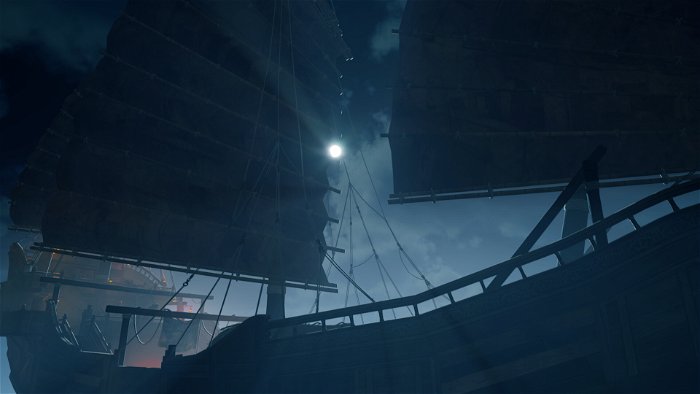
I might have to agree with you there. There’s a paradigm shift when you go from TV or film to video games. Have you guys experienced anything like an immense challenge?
Singer: Huge challenges, huge challenges. I mean, I didn’t know what Unreal Engine was, when I first began making this like, I was the definition of green (laughs). So it was a massive learning curve, and obviously, story is our bread and butter, that’s something that we know how to do. Coming from that world of story on a 2d screen, to a video game where a player can do whatever they want in that space. They control the narrative rather than us controlling the narrative, and so it was a bit like 3D Chess, because we had to anticipate everything that was going on.
But I think that you can be a jack of all trades, of which I definitely am, and also bring in masters and experts who know the field so well. So, bringing in Dave, for example, one of our exec producers, bringing in game designers, programmers, narrative designers, people who really know the field, and learning from them was amazing and an incredible experience. But definitely, yeah, the tech challenges, finding bugs, navigating mechanics, I didn’t even know what a mechanic meant when I first began. I mean, honestly, it was the biggest learning curve, but super rewarding.
Did Singer Studios’ previous work on timepieces, did that actually help or hinder the process at all?
Singer: Timepieces?
Like The Last Rifleman?
Singer: Oh, one of our productions. Yeah, I think one of the things that we did, which we were talking about earlier is that we bought in a writer’s room, which is very much something a medium that we use in film and TV that we don’t have in video games. It was a unique aspect of the development of the game because, ultimately, we brought in our Narrative Designer, myself, our lead programmer, our game designer, and our lead artists all into a room.
And we started talking about what we were going to create and what the game was going to be in the combination of telling the story but also, how the mechanics were going to help enhance that. And usually in game designs, you know, you start with the mechanics and like what the mechanics are going to be and then you fit the story to the mechanics.
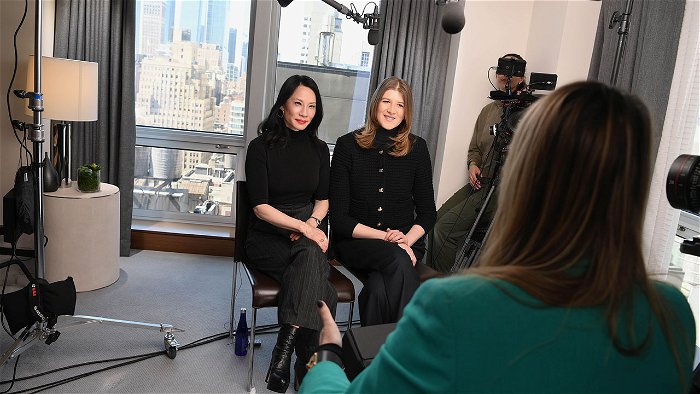
Lucy Liu: I think what’s different about this particular game is that it’s not about weaponry. So, it’s about a story and a narrative. And that kind of changes, I think in some ways, in many ways, makes it more challenging. Because normally they enter a room and they have to, you know, their objective of the game is to get to the next room, you know, and survival, etcetera.
Damage, explosions, you know, just the body count. And I think so in some ways, having a writer’s room and having that recognition that it is based on, it’s a historical figure that makes it, in some ways, it’s more specific and more detailed, but at the same time more difficult, because how are you going to continue to interest the player to keep going?
I think the production value and the research in the specialized version of this game really create an atmosphere. So that then has this ‘alerting’ within the actual game itself, which is an absorption of that, as opposed to “I’m going to read the history book.” I think that’s really wonderful, and it was very alluring for me about this project.
Being behind the lens of The Pirate Queen, what did you find was the most jarring aspect of portraying someone so powerful, yet your voice is so calm and collected in the video game?
Lucy Liu: A lot has to do with the direction that Eloise had given me. Because, for me, you know, most of the time, when you do a voiceover at the end of the sessions, your voice is pretty much strained and *strains* shylaaa! (laughs). You know, but for this, she reminded me that the person is experiencing what you’re saying.
And it’s them thinking, so the intimacy of that, and the quiet elegance of this character, is it was sort of a nice reprieve from the screaming and the yelling and the antics that one normally has for animated voiceovers, even for book reading, there’s something very different about it. And the intimacy of that is something I really appreciated. But I’ll give that over to her (Singer) because she was the one who directed me and said that it’s something that doesn’t need to be a 10. I can really connect with that subtlety.
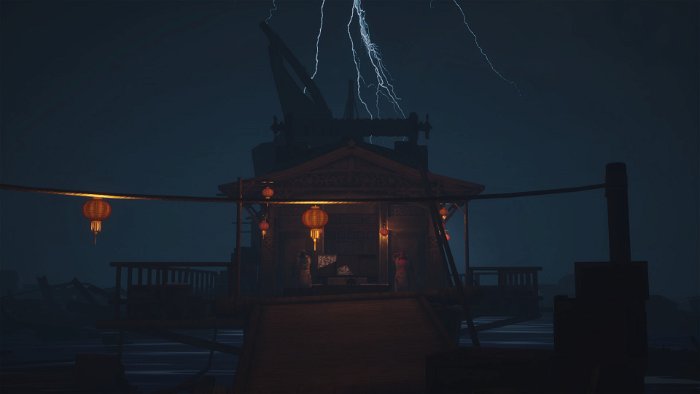
Singer: I didn’t think that I needed to spin the room, (laughs) Lucy had it covered! I was just going to get over it, like this woman is incredible! But yeah, I mean, it is it’s one of those things that with VR, you know, the headset is so close to your head that when you’re stepping into the shoes of this character, and you hear the narrative like YOU are HER, you kind of want that small, quiet voice in your head that’s telling you what to do. There’s a vulnerability to it that allows you to relate to the character. So, you feel emotionally connected to the person that you’re playing.
Did you feel emotionally connected to the person you were playing in The Pirate Queen?
Lucy Liu: I don’t know if it’s emotional; it’s more of a sort of almost a virtual experience for me because also learning about her and understanding that this is just a sliver of time in her life was really exciting. It ups the stakes because the time when she actually succeeds is that night. So, what I connected with this, it’s just the 1800s, you know, the 19th century for a woman who was a courtesan, who was a prostitute to start to rise to this power and to be the commander of this fleet, this massive fleet.
It’s pretty remarkable to see that, especially when you’re living in this time in 2024, and people are still talking about gender discrimination and equity in the workplace. For her to really see that and have the foresight to create this law that says men and women are equal. If you abuse, you know, a woman, then you know, you’re out.
How important was it to both of you guys, as executive producer and director, that you didn’t use Cheng Shih’s first name Zheng Yi Sao?
Singer: Yeah so Zheng Yi Sao is the Mandarin version of Cheng Shih. So for us, we adopted Cheng Shih, which is the Cantonese version, and all of the names that we used in the game are the Cantonese pronunciation so –
Lucy Liu: Which is the original language.
Singer: Yeah.
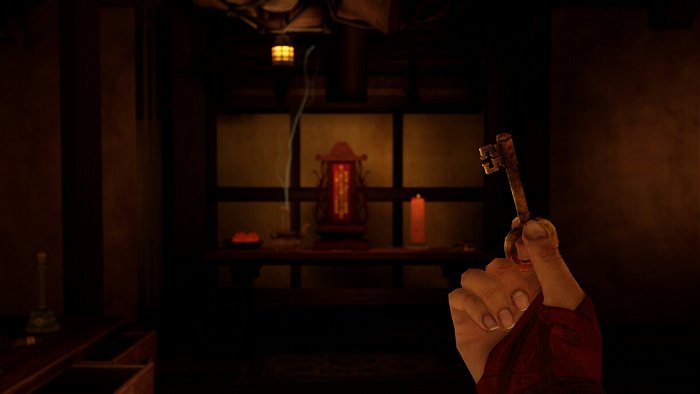
Lucy Liu: So, there’s many different dialects in Chinese MANY, but the written language is the same, but the way you pronounce it is different. So in a way, when you go to different countries or different, I’m sorry, if you go to China and you’re in different provinces, they won’t understand each other. But, if you present the written word, they will understand what you’re saying. By the writing. So that’s in some ways, a way to keep people coming together by not keeping them apart with their dialects.
I understood the initial translation meant “wife of”
Singer: Wife of Cheng, yeah.
Does it still translate directly?
Singer: Yeah, so Zheng Yi Sao is “wife of Zheng” and Cheng Shih is “Mrs. Ching,” So it’s the same. It’s the same pronunciation and the same intention behind that.
Why did you guys think it was a good idea not to put combat in a pirate video game with The Pirate Queen?
Lucy Liu: I think that’s a great question. I think that for me, doing a voice in a combat movie is more typical. I think this is a more atypical story, and I’m just guessing, and you will, of course, adjust and pivot accordingly, but I think because Eloise’s team and Eloise were starting as a film. I don’t know that it was going to be that kind of a budget, it was just to tell the story of this woman.
And so when one shifts to VR, I don’t think it’s about combat, even though that’s a much more popular and probably a more different gore choice. It’s exposing people to that history, you know, and that time, which is exceptional. And we see it, we see it on television and in films. What to experience in VR is so different. You know, I mean, I don’t know, if you want to make the same thing over and over, you know, it’s different.
Singer: I think as well,
Lucy Liu: I think I would have been losing my voice if there was combat! Screaming a lot! (laughs)
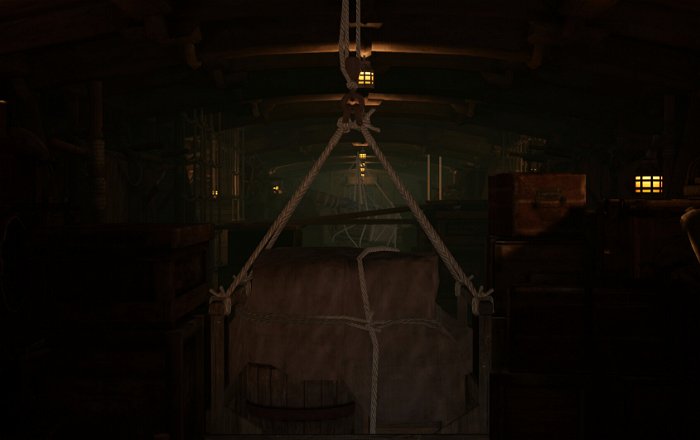
Singer: This is very true (laughs). It was also the idea that there are so many video games that do have combat and especially in the VR space, it’s such a saturated space that, for example, we got featured as ‘Best of Quest’ for the last two months in a row, which is an amazing thing. And when you look at the ‘Best of Quest’ titles, we’re the only one that’s a non-combat title. And I think that’s very, it shows what at the moment is in the market. We wanted to do something different because, as Lucy says, this is such an atypical title.
It’s so nuanced and interesting that creating something that didn’t have combat meant that we could go the extra mile, create really interesting puzzles, we could make it more exploratory, and add the adventure element to it in a different way.
You know, you get to row past guards, you get to climb up the side of the ship, all of those things that still allow you to be a pirate, but it’s also something that parents would be really happy for their kids to play because it doesn’t have combat in it. And it’s not advocating that. So it was sort of one of our core pillars, and we started out with the intention of creating a game that you don’t go around for that.
Lucy Liu: I think because the initial idea was a film, it’s more of a narrative, as opposed to people in the audience participating in a combat form like Braveheart or something like that, that’s going to be, you know, be the two forces clashing. And I think this is a different story because it’s an underdog story. Not just because she was a woman but also because she was a courtesan. And there’s such a caste system in the world. And I think that that’s something that people would not have seen coming.
Singer: So just to play devil’s advocate, if you imagine that every single movie in cinema was James Bond, like the next James Bond, every single one, you will only get a certain amount of people who are into James Bond going to the cinema, right? So, with this, it’s like giving people options rather than James Bond, it’s variety. I think that if we’re only catering to one audience, and that audience is going to be the only audience who’s going to be playing VR, whereas actually, what we want is for different people to engage with VR and widen the audience so that we can give different experiences to different people.
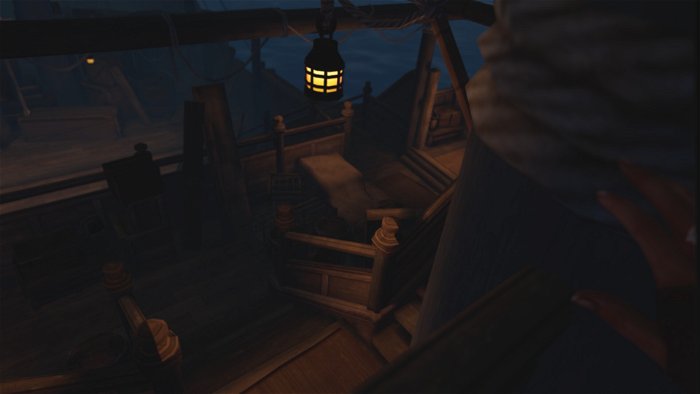
I understand that you guys are going to make a graphic novel, maybe a film, maybe a TV series; that’s at least the plan. Are both of you guys staying on board? What exactly are we looking at? Can you guys give me a teaser?
Lucy Liu: I think the idea of a graphic novel is the ability to sort of really get in there with the art and to explore that and have the dimensions much like many comic books and graphic novels have, which can engage different audience members. For example, there are some graphic novels that my son can’t read right now. But eventually, maybe he will.
But he’s very much into that, so there’s a right age range for that. I think it’s a natural progression to create a narrative from that, unlike what’s happening in the DC/Marvel Universe, you know, in those different worlds you can play with. I think it’s nice to think big and then sort of see what happens. I think, if you think small, it becomes a little more limited, and therefore, you sort of shrink down. I think the opposite is happening because of this woman and what she represents.
Singer: The Pirate Queen literally became the most powerful pirate in history. Her story is so huge that it only makes sense to do it justice and tell it in a different and exciting format, like a graphic novel or film.
The Pirate Queen: A Forgotten Legend is out now for Meta Quest 2, Meta Quest 3 and PCVR.
